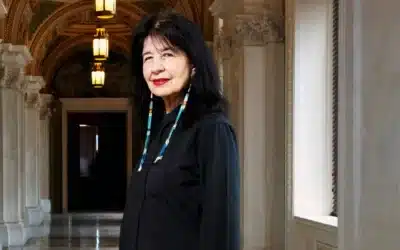« Pratiques langagières, terrains, méthodes, théories »
Dans le cadre de son séminaire doctoral, le SeDyL accueille les vendredis 17 octobre et 7 novembre 2025, respectivement, Dr. Florence Bonacina-Pugh de l’Université d’Edimbourg et Dr. Zakeera Docrat de l’Université du Cap-Occidental pour deux interventions portant sur les politiques linguistiques dans le secteur de l’enseignement supérieur et de la justice.
Animé par Isabelle Léglise (CNRS, SeDyL) et Valelia Muni Toke (IRD, SeDyL), ce séminaire doctoral accessible aux étudiant.es de Master 2 et organisé avec le soutien de l’Ecole doctorale de l’INALCO et de l’UMR SeDyL. Le séminaire met l’accent sur l’utilisation de pratiques langagières dans des contextes traversés d’enjeux de pouvoir et d’inégalités comme la famille, l’école, le travail, la santé ou la justice. Les pratiques langagières sont étudiées en lien avec les problématiques socio-anthropologiques et politiques contemporaines. Le séminaire s’appuie, à cet effet, sur une variété d’approches méthodologiques et de cadres théoriques et sur la circulation de savoirs issus de zones géographiques et traditions académiques variées.
.
17 octobre : Florence Bonacina-Pugh, Université d’Edimbourg
Les travaux de Florence Bonacina-Pugh portent sur l’effet des pratiques langagières sur les politiques linguistiques officielles. Spécialiste des politiques linguistiques dans le secteur de l’éducation et de l’enseignement supérieur, elle reviendra sur le concept de « politiques linguistiques pratiquées » (practiced language policies) dont elle est l’auteure.
Présentation de son intervention :
Exploring ‘practiced language policies’: Advancing the Empirical turn in language policy research
« The field of language policy has been characterised by a series of theoretical turns (e.g. (Ricento, 2006), which have influenced the ways in which the concept of ‘language policy’ has been understood and studied. The latest of such turns has been referred to as the “Empirical turn” (Johnson and Ricento, 2013) and has seen a strong emphasis on ‘agency’ (e.g. Bouchard and Glasgow, 2019; Liddicoat & Taylor-Leech, 2021) and on micro-level ethnographic investigations of language policy processes (e.g. McCarty, 2011). In this talk, I will present the concept of ‘practiced language policies’ (Bonacina-Pugh, 2012) and how it has contributed to advancing the Empirical turn in language policy research. Drawing on a Conversation Analysis of a set of interactional data I collected in a Higher Educational setting, I will shed the light on
- what can be referred as the ‘practical’ approach to language policy research (Bonacina-Pugh, 2020),
- what is meant by ‘practice’ in this line of research,
- how it can be integrated in a broader investigation of language policy as text, discourse and practice. I will also share my recent reflections on the dynamic nature of practiced language policies (Bonacina-Pugh, 2024) and how it may impact the way we research practiced language policies.
- Finally, I will show how the concept of ‘practiced language policy’ has recently been adopted and developed in a variety of domains other than that of education, such as the home, online communication, the workplace, healthcare settings and public spaces ».
7 novembre : Zakeera Docrat, Université du Cap-Occidental
Dr Zakeera Docrat est experte en linguistique juridique et médico-légale. Ses travaux portent sur les politiques linguistiques en Afrique du Sud et l’accès à la justice. Son intervention portera plus particulièrement sur les défis posés par l’usage unique de l’anglais dans le contexte juridique et les problèmes posés par l’usage exclusif de cette langue au niveau de la formation à la justice, sa pratique et son exercice.
Présentation de son intervention :
Linguistic prejudices experienced by African Language Speaking Witnesses and Legal Practitioners: A South African Case Study
« South Africa has 12 official languages that enjoy constitutional protection and promotion, however the legal system and profession are regulated through the sole use of English. In this presentation, I will provide
- an overview of the linguistic challenges facing witnesses and legal practitioners and the impact on access to justice and obtaining justice. In doing so,
- I will provide a critique of the current monolingual language of record policy for courts and the effects thereof on the quality of interpretation in courts,
- I will identity and discuss the statutes and policies supporting an English only approach in legal education and legal practice. I will engage with various case law examples for purposes of practicality,
The presentation concludes with recommendations, including ongoing research projects, grounded in the discipline of forensic and legal linguistics, aimed at addressing the identified challenges ».
Assister au séminaire : informations pratiques
Séance du Vendredi 17 octobre
- 9h30-12h30
- Maison de la Recherche de l’INALCO, 2 rue de Lille (Paris 7e), salle L0.01.
- Lien zoom : https://zoom.us/j/97206470067 à partir de 10h.
Séance du Vendredi 7 novembre
- 9h30-12h30
- Maison de la Recherche de l’INALCO, 2 rue de Lille (Paris 7e), salle L0.01.
- Lien zoom : https://zoom.us/j/97206470067 à partir de 10h.
Liens
Les intervenantes
- Dr Florence Bonacino-Pugh ; la liste de ses publications
- Dr Zakeera Docrat ; Dr Zakeera Docrat sur The Conversation
Le SeDyL
- Le site du SeDyL
- Programme complet du séminaire doctoral
Crédit photo : Pratiques langagières – St Laurent du Maroni, Guyane © L. Puren, 2005
À propos de l’auteur de cet article
Murielle Vauthier, doctorante (LIS – UPEC) & Manager de l’EUR FRAPP



